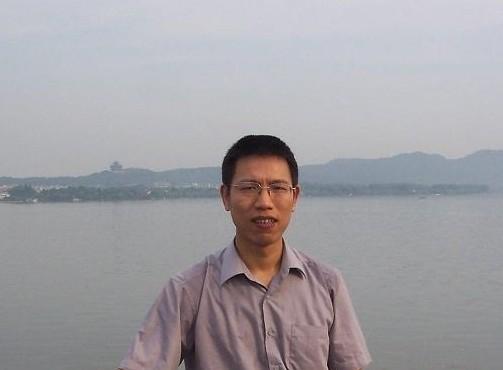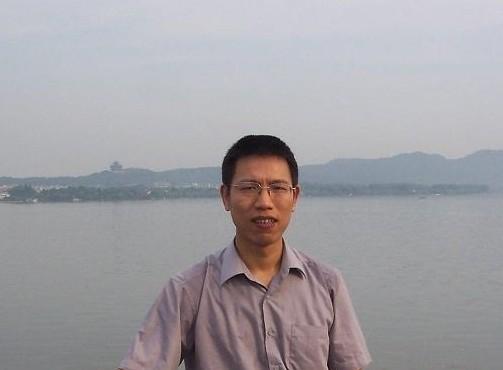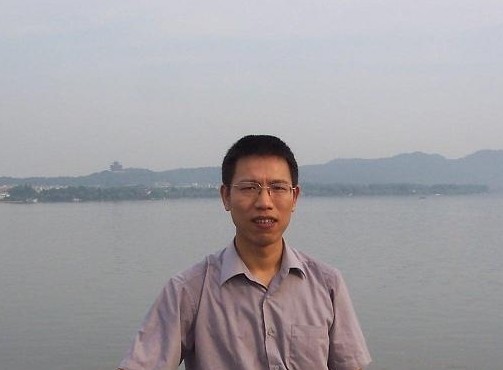A Chinese mathematics professor, once locked up in a mental hospital for writing political commentaries, says he has stopped hoping for political reform in China and is appealing to Chinese people everywhere to resist the Chinese communist Party’s (CCP) tyranny and disintegrate the Party.
Professor Wang Henggeng was born in 1971. He graduated with a Ph.D. in mathematics from Zhejiang University, one of China’s top universities, in 1998. He got a faculty position at Southern China Normal University in Guangzhou in July 1998. Because of his outspokenness on political and social matters, Professor Wang has suffered much harassment and persecution at the hands of Chinese officials and fled to Australia earlier this year.
In mid-November, on the eve of the 7th anniversary of the “Nine Commentaries on the Communist Party,” an editorial series published by The Epoch Times, Professor Wang spoke with The Epoch Times in an exclusive interview.
He said, in 2005, at the age of 34, he started to have many thoughts about the social situation in China. He said there were 13 chemical factories in his small hometown. Many babies were born with birth defects. Millet and rice fields were contaminated, and vegetables would also not grow well. This caused a riot involving as many as ten thousand people in April 2005. People damaged a lot of cars, injured many government officials, including the local police chief, whose foot muscle was cut.
At that time he started to worry about food safety and corruption. When giving lectures to students, he would talk to them about China’s corruption problems. He also wrote an article titled “Culture and its Implication in Corruption and Anti-Corruption,” which was widely read.
Chinese authorities started spying on him and extorting money from his family. His wife, who was studying at Chinese University of Hong Kong, was also made to feel a lot of pressure. In 2007, under the direction of plainclothes police, his family “tricked” him [to check] into a mental hospital.
“The CCP uses many ways to persecute people. One of them is to lock people up in mental hospitals. This method has been used to persecute Falun Gong practitioners, and has also been applied to scholars and retired military personnel who want to safeguard their civil rights,” Professor Wang said.
There was another patient on the same floor with him, the Dean of an Urban Construction College.
In early 2008, after his release from the mental hospital, a massive ice storm hit China, causing power outages in many places because of collapsing utility poles. Professor Wang said he found out that the utility poles crashed under the weight of the ice because the metal used for the poles was too thin.
Likewise, poor construction was the reason why so many students lost their lives when their schools collapsed in the May 12, 2008 Sichuan earthquake.
“2008 was a year of terrible disasters for Chinese people, among them the toxic milk powder scandal. In order to assure that the Olympics were running smoothly, the CCP covered all these things up--the ice storms, the earthquake, and the toxic milk. I felt so bad,” Professor Wang said.
At that time he started talking to students again, in class and on the school bus, about the political and social problems. “I talked a lot about politics, the financial crisis, the bond problem--how the Chinese government ruthlessly grabs people’s money and throws it overseas--and how corrupt officials run off with the money they’ve taken.”
Back then he was only hoping for political reforms. “Someone needed to push for it, but it was very difficult to do,” he said. But he also did not know the CCP’s true nature then, he added.
Because of his daring speeches, he attracted the attention of other professors at the university. They reported him in order to protect their own positions, or to secure research grants.
“Through these many incidents, I felt the coldness of the Chinese people, and realized the true nature of the CCP’s totalitarian regime. I finally understood that the CCP would not change. They have been orchestrating political movements ever since coming to power, including the Great Famine, in which millions of people died. This kind of thing won’t be solved by a reform,” Professor Wang said.
“Nowadays in China, there is poisoned food and environmental pollution everywhere. All of the [present-day] disasters are comparable to China’s famine during the Great Leap Forward, and the effects are even worse. The land pollution will affect many generations to come.”
Furthermore, the CCP’s numbers cannot be trusted, Professor Wang said. “If the CCP’s media report that 30 percent of the land in China is polluted, I think it’s most likely twice that, as the CCP’s reports are full of lies, and only portray its image of harmony.”
Professor Wang said the 2008 toxic milk powder scandal troubled him the most. He couldn’t keep silent and wrote the blog article “Comments on Culture and its Basic Characteristics.” This article was also widely spread and generated panic and hatred among the CCP, he said. He was again under surveillance, being tracked everywhere and also threatened.
Later on he came down with cancer. His family was under enormous pressure, and he had to divorce his wife.
In 2009 he moved back to Hangzhou. While he was getting treatment for cancer, authority still wouldn’t leave him alone, he said. He was under surveillance even when he went to visit China Academy of Science for an academic affair. Authorities checked to see if he was in contact with Falun Gong and if he visited any overseas websites when he was changing his job.
Because he couldn’t lead a normal life in such an environment, he escaped to Australia in January 2011. He said his old classmates don’t dare to keep in contact with him, but he has no regrets about what he has done. However, although he now lives in a free country, he says he is still under surveillance by China’s overseas spies.
“After I have this phone conversation with you, Chinese spies will know it right away,” he said.
Professor Wang said his circle of influence in China were mainly university lecturers and college students, all of whom condemned the CCP. Since the Sichuan earthquake many ordinary people and officials also share those sentiments.
In regard to his experiences with overseas Chinese, he said his deepest impression is one of coldness and of not wanting to get involved. “They are very different from mainland Chinese. Although they condemn the CCP in private, there is very little or no action, since some of them worry about wanting to return to China in the future.”
No matter where they live, in China or overseas, Chinese are all suffering the same misery, Professor Wang said. They are being controlled and constantly brainwashed by the CCP.
Professor Wang proposes spreading the Nine Commentaries more widely to awaken more Chinese people, and to promote the Party-quitting movement.
“No matter how the CCP blocks the Internet, they can’t stop this historical tide of Chinese people’s awakening. The disintegration of the CCP is inevitable,” he said.
As of Dec. 8, over 107 million Chinese have renounced their memberships in the CCP and its affiliated youth leagues, according to the Chinese language Epoch Times, which keeps records of the quitting statements collected through the Internet and by volunteers at Quitting-the-CCP Service Centers worldwide.
Read the original Chinese article.






